If you are thinking about changing your Employer of Record (EOR), then it’s normal to have some concerns. But don’t let that stop you from acting on the important reasons you’re considering the switch in the first place.
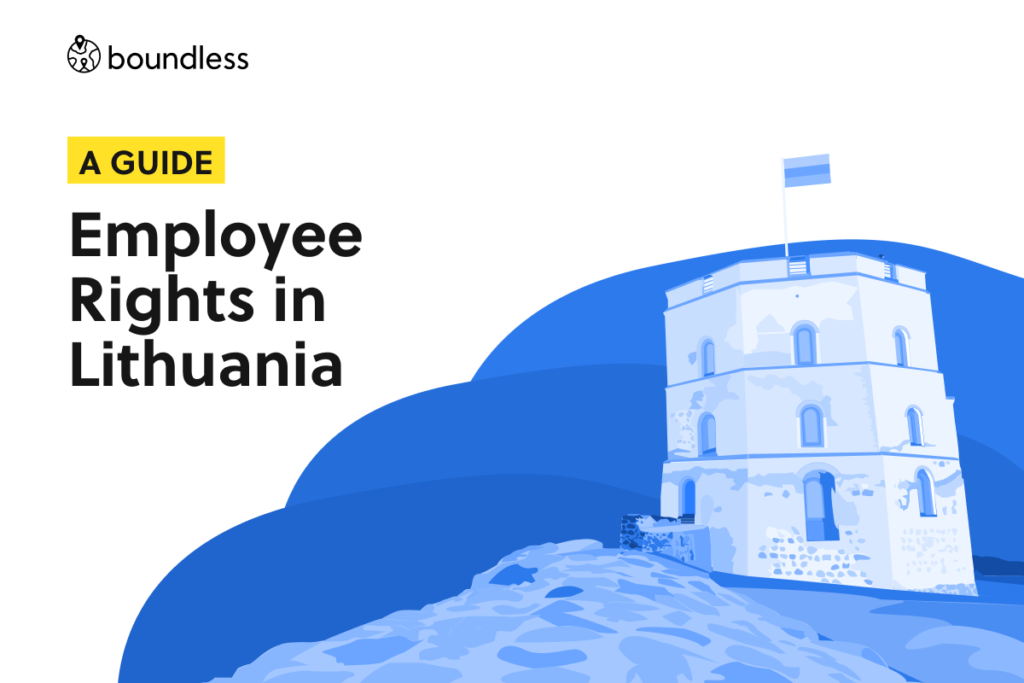
Considering employing someone in Lithuania? To do that compliantly, an employer has a lot of obligations they have to fulfil. One comprehensive and important topic is the set of local employee rights a worker residing in Lithuania is entitled to.
Below is a guide to employee rights in Lithuania to help you understand what you need to comply with. (You can read about employee rights in Australia, Brazil, Canada, Croatia, Ireland, France, the UK, Portugal, Poland, Germany, The Netherlands and New Zealand).
To employ someone in Lithuania, you need to be a registered employer. Alternatively, you can work with an Employer of Record, such as Boundless, which will employ the worker on your behalf locally. That would spare you any registrations and ensure compliance with employment and tax law, all the while assuring harmonised experience for your employees there.
Regardless of the employment approach, all employees in Lithuania are entitled to the following employee rights.
In Lithuania, employment agreements formalise the relationship between employer and employees and list out the employee’s duties, workplace regulations, remuneration, and other employment conditions, to name a few. Contracts must be in Lithuanian (or Lithuanian and a foreign language agreed on by the parties) and in writing.
Contracts must be signed and shared with the employee for signing before the start of employment. The employee should be given a copy for their records, and the employer keeps the other copy. If both parties agree, the contract may be signed electronically. Offer letters are not common in Lithuania, and probationary periods cannot exceed three months. The following terms and conditions must be included in the employment agreement:
Additionally, if the employee is going to be employed for more than one month, the following terms and conditions must be provided in writing:
Although not covered on the employment contract, some duties are implied in every employment relationship. That includes the duty of the employer to comply with health and safety, ensure the working conditions set in labour laws, take care of the needs of the employees, and organise work appropriately. Employees have implied duties to work fairly and honestly, follow work discipline and employer’s orders timely, and protect their employer’s property and commercial secrets.
Employers have the obligation to safeguard and care for their employees’ health and safety. All employees that are at risk must regularly undergo a health checkup. In addition, when a new hire starts, the company must inform them of the rules and requirements that apply to the workplace regarding health and safety.
Companies must (1) document in writing that the employee was instructed about the applicable health and safety requirements and (2) have the employee sign the evidence before the start of employment. Employers must also appoint an employee as the person responsible for health or safety or hire a company that is licensed in that area.
Employees have a right to receive payslips either once or twice monthly, detailing their gross and net salary as well as any deductions (including the reasons for them), working hours, and overtime. Online payslips are acceptable.
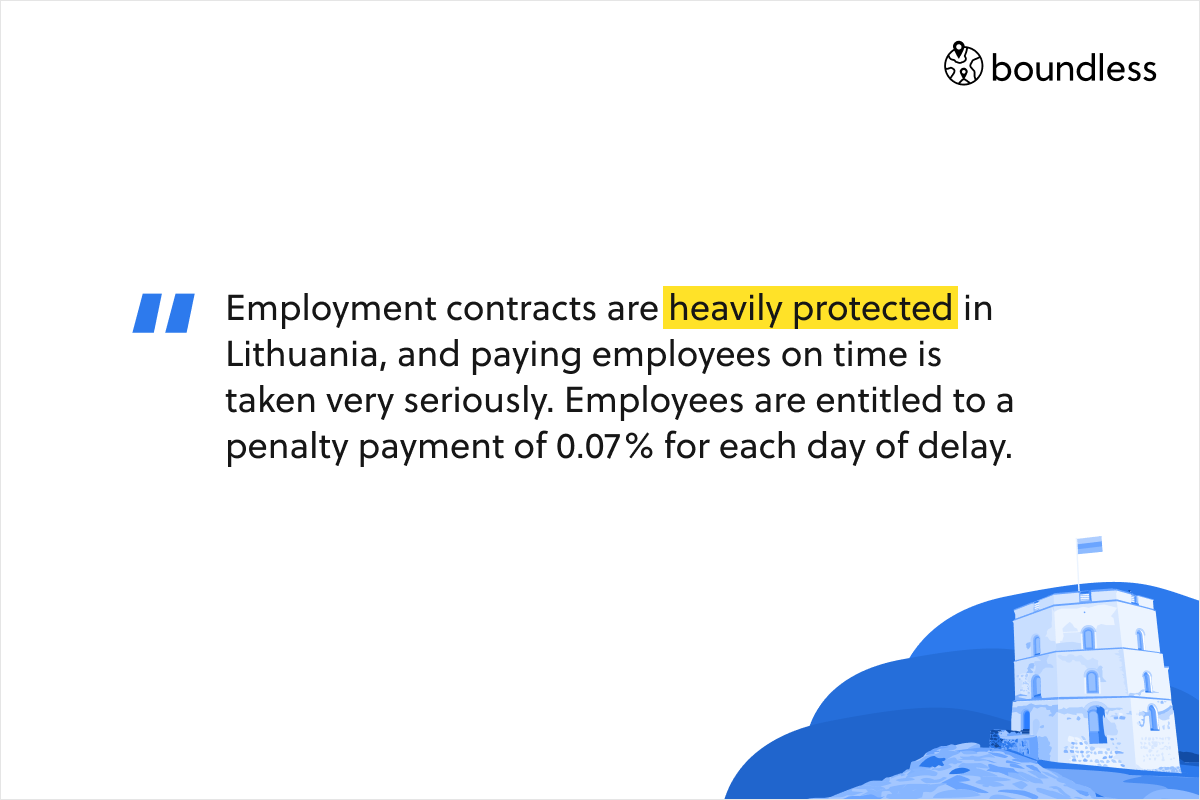
Employees have the right to request to work remotely, while an employee’s refusal to work remotely cannot be used as a legitimate reason to end an employment contract or change working conditions. When such a request is issued by certain employees (an exact list of such employees is provided below), employers can reject the employee’s request only if they can prove that such an arrangement would lead to excessive costs.
In case of pregnant or breastfeeding employees, parents with children up to the age of 3, single parents raising a child under the age of 14 (18 if the child has a disability), or an existing request by a health care institution to allow the employee to work from home, the employer must agree to the employee’s request to work remotely for at least 20% of their total working time.
Employment contracts are heavily protected in Lithuania, and paying employees on time is taken very seriously. Employees who are paid their salaries late are entitled to a penalty payment of 0.07% for each day of delay. Upon termination, employers must pay any outstanding remuneration to employees on the last day of work. If they are late with the payment, the employer incurs a penalty fee equal to the employee’s average salary for the late period.
Employers must make sure they don’t discriminate against individuals, based on certain characteristics and circumstances, while interviewing potential candidates and promoting/terminating employees. Employees have the right to equal treatment in the workplace and are protected from discrimination based on the following:
While it is not a common practice, individuals who are discriminated against may bring a claim to court, where they may be awarded compensation that has no cap.
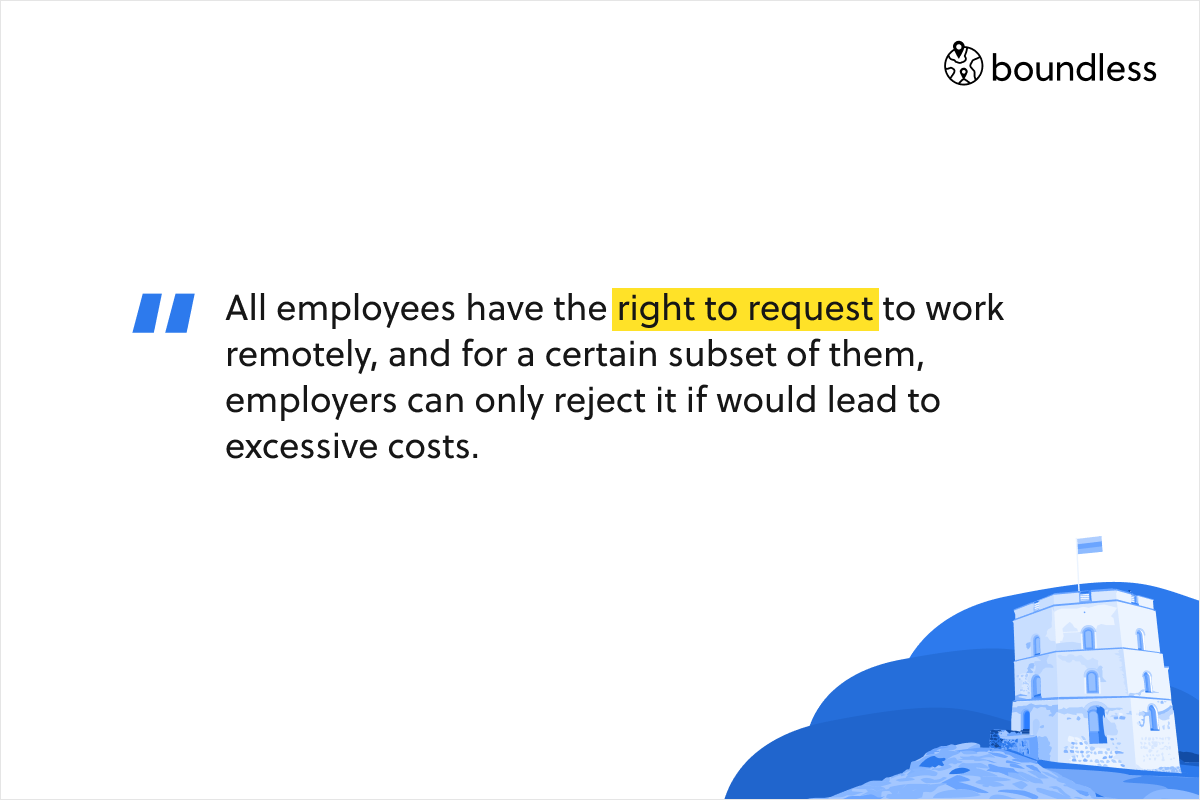
Based on the characteristics listed in the “Anti-discrimination” section, employees have the right to be treated equally and fairly and to receive equal opportunities for promotion in a company. It is illegal for employers to discriminate against employees. Moreover, employees have the right to equal pay when doing the same work function under the same conditions, regardless of gender.
Companies with 50 or more employees must implement a policy, and monitor its principles regarding employees’ equal rights and opportunities. Such policy must be published so that all employees have access to it.
Diversity and inclusion
Companies must apply equal criteria and conditions when hiring, promoting, offering professional development and benefits, and terminating employees.
During a business transfer, the new company has the obligation to take on all employees from the transferor and cannot make any detrimental changes to the employment conditions. The new company must honour the employment conditions in place with the employees. Employees that are affected by the transfer must be notified in writing about its terms and conditions at least ten working days in advance.
An employer has obligations under the General Data Protection Regulation (GDPR) and the Personal Data Protection Act in respect of the personal data of its employees. As it processes the personal data of its employees, the employer is considered to be the data controller. If the law prescribes data processing, the employer must appoint a person responsible for overseeing the processing of personal data (data protection officer).
Under the GDPR rules, employers are subject to restrictions when retrieving and processing employee data:
Protected employees include trade union officials; pregnant women; those on maternity, paternity, or parental leave; ill or injured-at-work employees; those attending military (or alternative) training; long-term employees; employees who have no more than three years left until retirement; employees with children (age 14 or younger or disabled children); and single parents. The employer may terminate their employment only in case grounds laid down in the legislation are met.
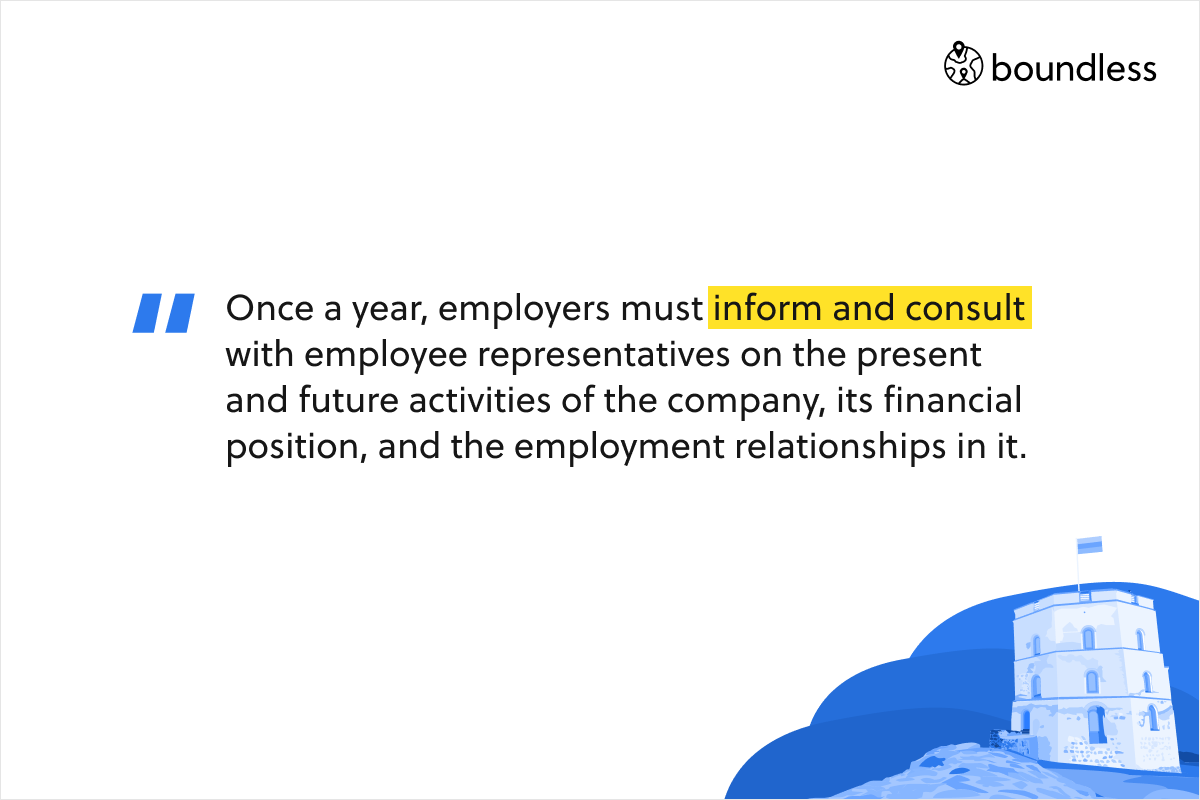
Employees who have been continuously employed with the same company for five years accrue entitlement to training. When off to training, employees are remunerated with at least half of their average monthly salary. Education leave may be either formal or non-formal (in case it is non-formal, it is to relate to employee’s job functions) and should not take longer than ten working days within a year.
Employees who lose their job may be entitled to the government’s unemployment benefit if they satisfy the criteria listed in the "End of Employment” section.
The benefit is paid for up to nine months (in certain cases, it can be prolonged). The allowance is made up of a fixed part and a variable sum. The fixed part is 23.27% of the minimum monthly wage (€149.39) plus the variable sum of 38.79% of the average monthly insured income of the individual for the first three months, 31.03% for the next three months, and 23.27% for the following three months. The benefit is capped at 58.18% of the average national wage.
Anyone has the right to establish a trade union freely and without prior permission, and to join or not to join a trade union. A trade union may be founded by at least three employees (the exact minimum number of members depends on the total number of the employees within the company).
Employees are entitled to join the trade union of their workplace or any other trade union. Employees are entitled to act as the elected representatives of a trade union.
Consultation with employees
Once a year, employers must inform and consult with employees’ representatives on topics such as the present and future activities of the company, its financial position, and the condition of employment relationships in it. Employers must also consult with the representatives before group redundancies to try and avoid the maximum number of dismissals possible. Employers also have a duty to consult with employees when intending to reorganise or restructure the business, introduce new policies, or propose certain other changes in the company, such as changes to health and safety policies.
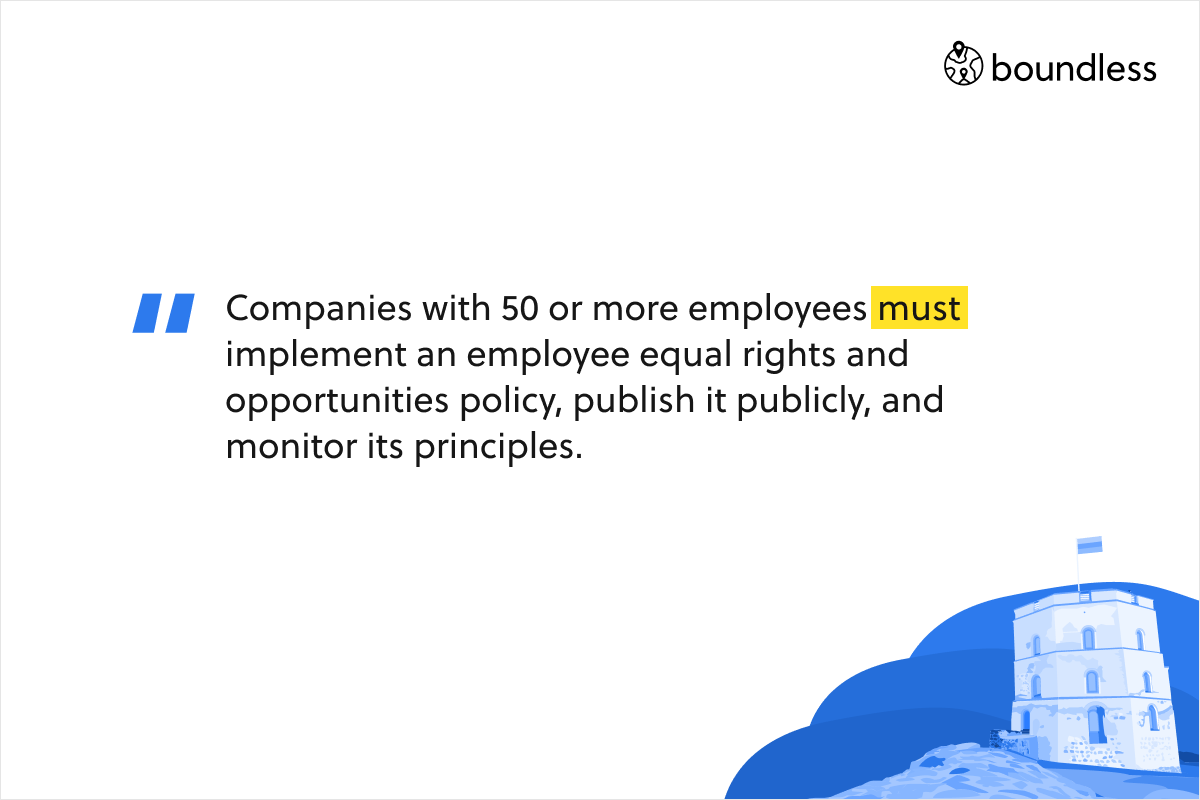
Adhering to employment law and employee rights in Lithuania will require a commitment to learning and working with a lot of local regulations. We are here to help you on that journey and take the time to make sense of complex legislative information, which we turn into easy to understand resources and comprehensive country guides.
However, staying on top of Lithuanian employment law may not be a top priority for you right now. That doesn’t mean you should give up on employing your next remote worker out of Lithuania or opt for hiring them as an independent contractor instead (which is a bad idea).
Boundless can help you employ anyone in Lithuania legally and hassle-free. Through the Employer of Record model, we act as the legal employer to your remote workers and take care of the many obligations that come with adhering to these employee rights in Lithuania. Learn more.

If you are thinking about changing your Employer of Record (EOR), then it’s normal to have some concerns. But don’t let that stop you from acting on the important reasons you’re considering the switch in the first place.
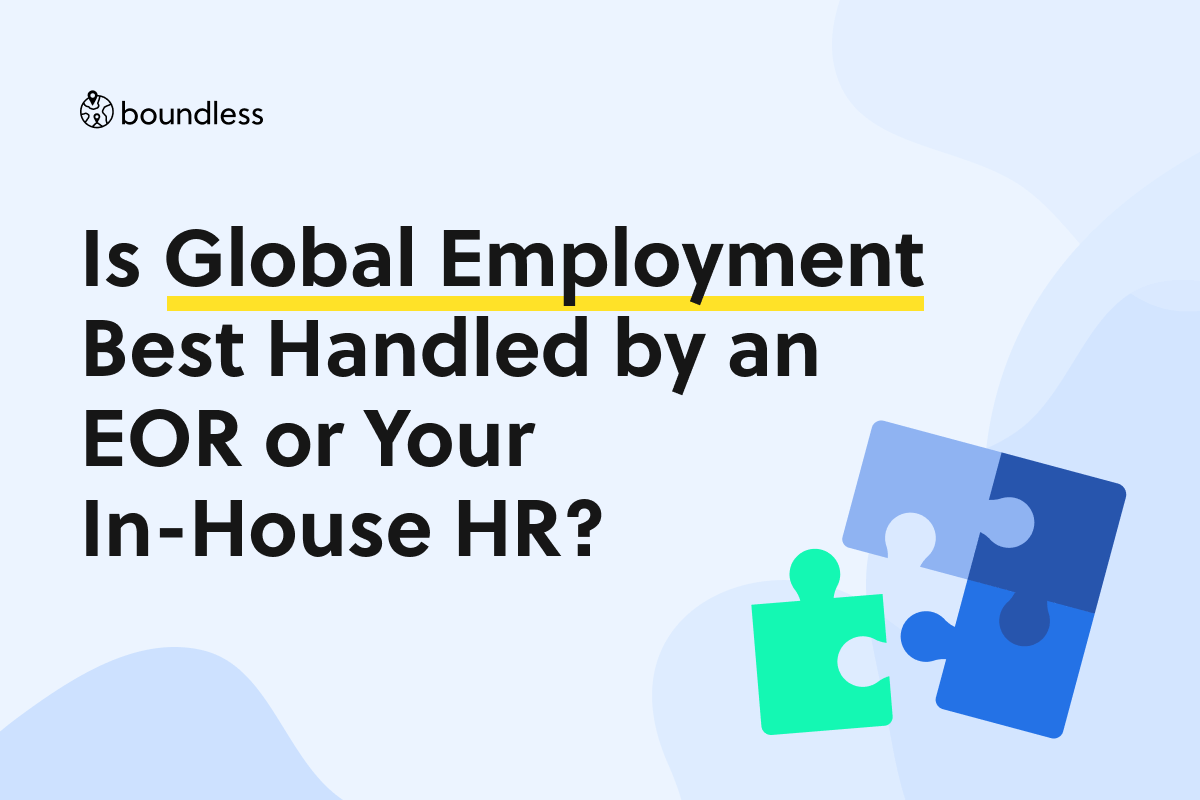
Explore the pros and cons of an EOR versus in-house HR for global employment, ensuring compliance and efficiency in international expansion.
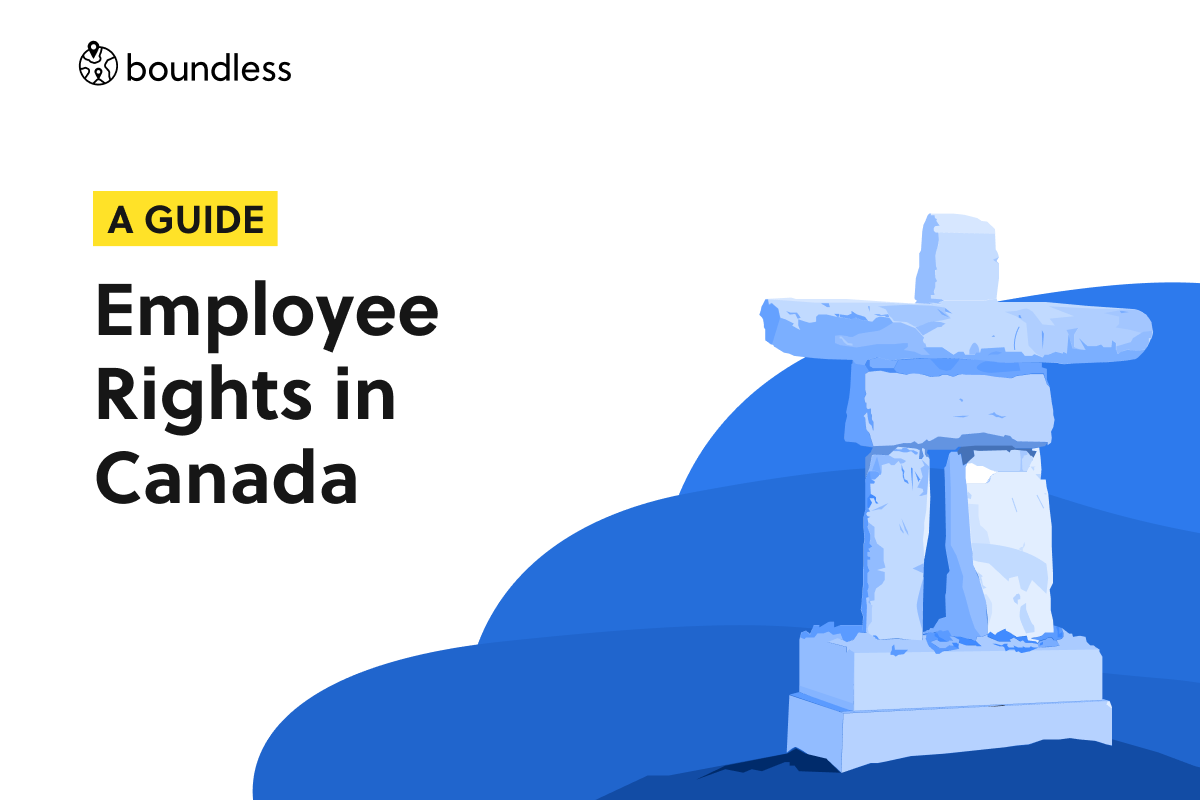
Considering employing someone in Canada? To do that compliantly, an employer has a lot of obligations they have to fulfil. Here is a guide to employee rights in Canada to help you understand what you need to comply with.

In today’s world of remote-working, there’s never been a better opportunity for businesses to expand globally, to reach new markets, or access the best, brightest, and most diverse talent. There’s just one problem. People need to be employed where they live and local employment laws are complex.

Considering employing someone in Brazil? One area you need to master is the local employee rights a worker residing there is entitled to. Here is a guide to employee rights in Brazil to help you understand what you need to comply with.

To employees, employment may seem relatively straightforward at the front end - sign a contract, get paid once a month, receive a payslip, take some time off when needed. Managing the back end is where the complexity begins.